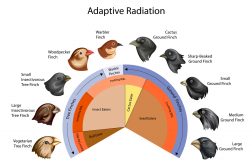Definition
noun
A branch of zoology that particularly deals with the helminths, particularly the parasitic worms
Supplement
Helminthology is a sub-discipline of invertebrate zoology. Invertebrate zoology is concerned with the invertebrates. Invertebrates are animals that lack a vertebral column (a backbone). Since there are a number of invertebrate species there are taxonomic-based sub-disciplines of invertebrate zoology, particularly arthropodology (the study of arthropods), cnidariology (the study of cnidarians), and helminthology.
Helminthology deals with studying the helminths, particularly the parasitic worms. The major groups of parasitic worms include the flatworms (Platyhelminthes), the nematodes or roundworms (Nematoda), and thorny-headed worms (Acanthocephala).
Helminthology is concerned with the studying of classification, taxonomy, distribution, ecological, and medical significance of parasitic worms. The golden era of helminthology was at the time when there were several papers were published, i.e. in the 18th and early 19th century. Helminthologist is the term used to refer to a specialist or an expert in helminthology. Some of the notable contributors in helminthology were Félix Dujardin, Friedrich Albert von Zenker, and Satyu Yamaguti. Félix Dujardin was a French biologist who contributed in this field through his work in a parasitic Nematode worm, Eucoleus aerophilus (Creplin, 1839). Friedrich Albert von Zenker, a German pathologist and physician, was celebrated for his discovery of trichinosis. Satyu Yamaguti, a Japanese parasitologist, was able to publish a series of six volumes entitled “Systema Helminthum”.
See also:
- invertebrate
- zoology
- arthropology
- cnidariology
- helminth
- worm
- parasite







